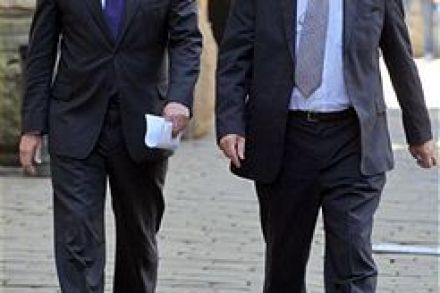The PM turns for his tailcoat
The Prime Minister will now wear a morning suit to the Royal Wedding, Ben Brogan reports. Since I first revealed in the Mail on Sunday that he was planning to wear a lounge suit there has been a slew of complaints that this was not appropriate. Even Bruce Anderson — the columnist most sympathetic to Cameron — joined in the criticism today and used it to tell a broader story about the coalition’s problems. Downing Street has now clearly listened and realised that the job of a Prime Minister on these occasions is not to make news. I think the issue acquired such salience because it became a question of



















